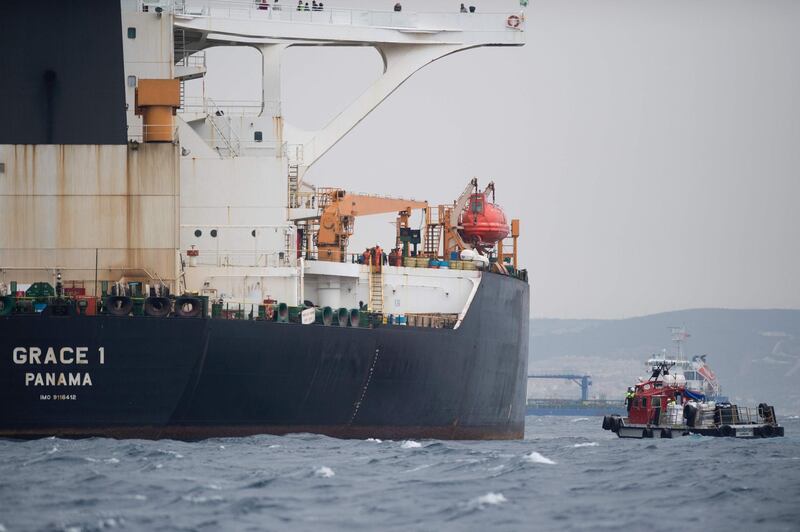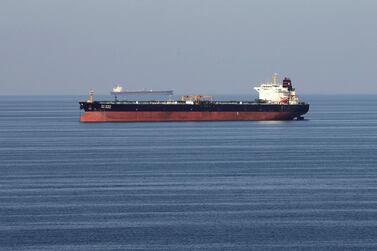Panama will withdraw its flag from more vessels that violate sanctions and international legislation, the country's maritime authority said, following the removal of about 60 ships linked to Iran and Syria from the Panamanian registry in recent months.
After the re-imposition of sanctions on Iran by Washington in 2018, Panama's former president Juan Carlos Varela gave the green light to remove a fleet of 59 tankers from the country's registry, according to two sources close to the decision.
Most of those vessels were owned by Iranian state-run companies but they also included ships linked to oil deliveries to Syria, the sources added.
A separate supertanker, the Grace 1, made its way to Gibraltar in early July, where it was seized by British Royal Marines on suspicion of violating sanctions against Syria.
The vessel was fully loaded with crude suspected to be bound for Syria's Baniyas refinery, Gibraltar authorities said.
The vessel arrived in Gibraltar showing the Panama name at its hull, but the Panamanian government later clarified it had been removed from its registry on May 29.
"Panama will maintain its flag withdrawal policy," said Rafael Cigarruista, general director of Merchant Marine from Panama's Maritime Authority.
"Our intention is to improve our fleet's percentage of compliance, not only regarding sanctions by international organisations, but also Panama's current legislation and maritime security rules."
Mr Cigarruista did not provide details on coming action or targeted fleets.
The exact process leading up to the July detention of the Grace 1 remains unclear. Spain, which does not recognise Britain's sovereignty over Gibraltar, said it would study whether Britain's actions violated its territorial water claims.
Iran called on Britain to immediately release the Grace 1 and warned of reciprocal measures on Friday after three Iranian vessels tried to block a British-owned vessel passing through the Strait of Hormuz.
As the United States seeks to increase pressure on Iran, Panama says it is trying to keep its registry clean from sanctioned ships and companies involved in wrongdoing.
Under international law, every merchant ship must be registered with a country, known as its flag state, which has jurisdiction over the vessel and is responsible for safety inspections and checking the crew's working conditions. When a vessel loses its flag, it typically triggers loss of insurance and classification if it does not immediately find another flag.
Panama has the largest shipping fleet in the world with almost 7,100 vessels registered, according to specialised firm Vessels Value.
The Central American country offers foreign vessel owners easy registration, the ability to employ foreign labour, and does not tax the income of the foreign owners.
Although still the world's largest, Panama's registry has dropped from more than 8,000 vessels in 2017. Liberia now has almost 3,800 registered ships, followed by the Marshall Islands with 4,100, according to the Vessels Value data.
Experts say the slow and outdated mechanism for registering vessels in Panama compared with other flag countries is to blame for the falling number. Panama, which this year announced it will improve the payment mechanism for its registry to speed up the process, is also withdrawing its flag more frequently since the US administration started putting pressure on allied countries to help enforce unilateral sanctions, the experts said.
"It's very important for us as a flag country to preserve existing ties and grow closer to administrations that are members of the International Maritime Organisation," Mr Cigarruista said, when asked if Panama is following US guidance on sanctions enforcement.







